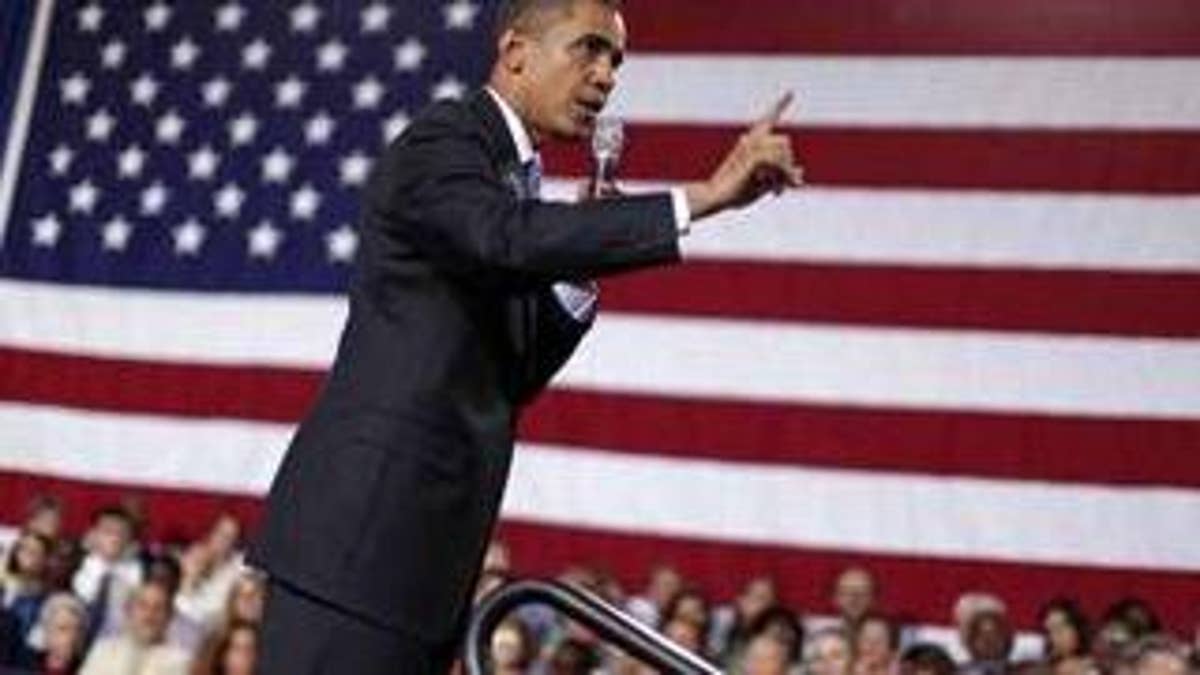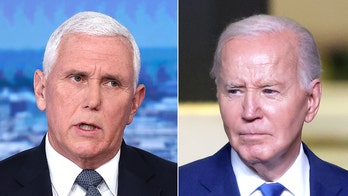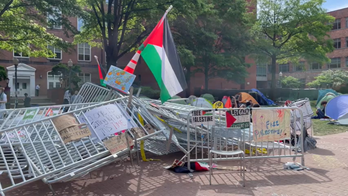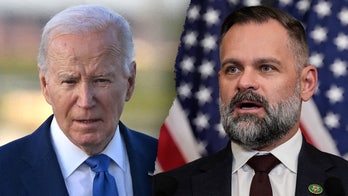
Much has been made of the chance for true, interactive democracy offered by the freewheeling town hall format that lawmakers are using in health care forums across the country.
But what the White House is calling a "town hall meeting" does not quite follow in the tradition of the public-driven forums that sprouted centuries ago in New England.
It's more like a press conference for the public.
In an orderly fashion, selected members of the audience pose brief questions, and the president elaborates.
And elaborates. And elaborates.
A look at President Obama's health care "town hall" Tuesday in Portsmouth, N.H., shows the president out-spoke his audience by a ratio of nearly 9-to-1.
Here's the scorecard.
Obama: 8,619 words.
Audience: 1,186 words.
That's hardly the kind of even-handed exchange of ideas that marked the town meetings of colonial America.
But Carolyn Lukensmeyer, whose company AmericaSpeaks organizes modern "town meetings" across the country to tackle policy issues, said public officials in general no longer use that spontaneous, rowdy and interactive format -- even though they kept the name.
The term "town meeting" used to refer to a gathering where decision-makers and opinion-givers clashed in the interest of forging legislative decisions then and there. But now the modern town hall refers to any old public forum.
Though some New England towns still use the traditional format, Lukensmeyer said the "faux" version used by major politicians and officials is much more "leader-dominated."
"What they became was campaign events," Lukensmeyer said. "Ninety percent of the time the candidate is talking."
White House Press Secretary Robert Gibbs described the president's town hall as part of "the pulpit." More commonly known as the bully pulpit, it's that intangible space the president -- any president -- occupies that allows him to hammer the message before an audience that, no matter the time of day or year, extends from coast to coast.
And the president's not afraid to use it, especially at a time when he needs to take back the momentum behind health care reform in the face of shifting public opinion.
"I think, obviously, he understands he has a pulpit that is large enough to deal with some of the misinformation," Gibbs said Wednesday, describing the New Hampshire event as a "good conversation."
Obama used the event Tuesday to address criticism and rumors about the Democrats' health plan -- assuring the audience that reform would not put government in charge of health insurance, that a provision for counseling on end-of-life care would not "pull the plug on grandma," and that the plan would not cut Medicare benefits.
But as town hall meetings go, it was more at the people than by the people.
Obama's closing statement was 891 words. His opening statement -- in which he noted New Hampshire's rich tradition of town hall meetings -- was 2,757 words and interrupted frequently by applause.
Contrast that with the more raucous and participatory town hall meeting Democratic Sen. Arlen Specter held the same day in Lebanon, Pa.
That meeting was noisily interrupted by a man who confronted Specter with a litany of grievances about him and his "cronies" before storming out. But before and after that interruption, which Specter diplomatically labeled a "demonstration of democracy," members of the audience were trading turns with the senator to deliver what amounted to a series of mini-speeches.
A word count of a partial-but-lengthy transcript of the town hall event showed the audience actually out-spoke Specter 61 percent to 39 percent.
The audience used the forum to air concerns about the cost of the package, illegal immigration, the need for tort reform, government intrusion, the labeling of protesters as "un-American" and other issues.
On Thursday, Gibbs suggested such town halls are not the norm and are not preferred. For the second day in a row he chided the media for drawing attention to the relatively civil tone of Obama's "town hall."
"While I appreciate that you all have decided that every town hall meeting ends in pushing, shoving and yelling ... they're not completely indicative of what's going on in America," he said.
Lukensmeyer said neither the controlled forum held by the president nor the rambunctious meetings held by other lawmakers qualify as real town halls -- Obama's meeting had too much decorum, while the others had too little.
White House spokesmen insist that the president is still choosing questions at random.
One official told FOX News a big reason the town hall Tuesday was not so fiery could be out of respect for the office of the president.
Aides said scheduled town hall meetings in Montana and Colorado over the next two days could produce more fireworks since they are not "liberal safe havens."
FOX News' Mike Emanuel contributed to this report.




